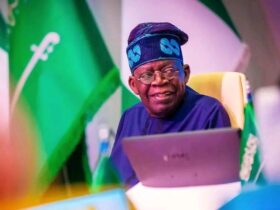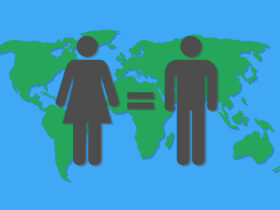At 65, Nigeria Stands Poised to Reclaim Its True Independence

As Nigeria marks its 65th year of independence, the nation finds itself at a pivotal juncture, grappling with profound economic, social, and governance crises. Despite political leaders’ attempts to paint a rosier picture, the reality is stark: Nigeria’s unity, once celebrated as its greatest achievement, now masks deep-seated divisions along political, economic, and social lines. The aspirations of the country’s founding heroes remain unfulfilled. Rather than leveraging the hard-won gains of self-rule to elevate its global standing, Nigeria has become a marginal player on the world stage, overshadowed by peers who have transformed their post-colonial legacies into economic powerhouses.
Instead of harnessing its rich cultural diversity to foster national cohesion, Nigerians have grown increasingly distrustful of one another, fueling animosity and conflict. The economy has failed to uplift the majority, with Nigeria frequently ranking near the bottom in key development indicators. Countries with similar colonial histories have surged ahead, becoming sources of financial and technical support for Nigeria-a scenario far removed from the vision of the nation’s founding fathers.
Reflecting on the early years of independence offers valuable lessons. In 1960, Nigeria adopted a constitution that established a federal system, granting significant autonomy to its regions. This framework allowed each region to progress at its own pace while encouraging healthy competition and innovation. Visionary leaders implemented diverse economic strategies, resulting in tangible social and economic progress within the first six years. Agricultural industries flourished, and higher education institutions were founded, laying a foundation for sustainable development.
The initial political environment was marked by intense rivalry, yet the federal constitution ensured regional self-governance, preventing central government overreach. This delicate balance fostered an environment where all groups could thrive. The 1963 Republican Constitution further protected minority rights by embedding a Bill of Rights that guaranteed fundamental freedoms such as expression, assembly, religion, and protection from discrimination. These provisions set the stage for accountable leadership and effective governance.
Leadership during this formative period was characterized by courage and foresight, with figures like Sir Tafawa Balewa in the North, Dr. Nnamdi Azikiwe in the East, and Chief Obafemi Awolowo in the West steering their regions toward prosperity. The economy was predominantly agrarian, with each region specializing in key export crops-cocoa in the West, palm oil in the East, and groundnuts, cotton, and leather in the North. The creation of the Mid-West region in 1963, supported by rubber and palm oil production, further diversified the economic base. This agricultural foundation was instrumental in fostering local industrialization.
However, political instability in the Western Region in 1964 opened the door for military intervention in 1966, abruptly halting the nation’s democratic and developmental momentum. The military’s imposition of a unitary government dismantled regional autonomy, replacing it with a centralized command structure that intensified political tensions and mistrust. These developments culminated in the devastating civil war from 1967 to 1970, which severely disrupted Nigeria’s social and economic fabric. Despite post-war reconstruction efforts, the scars of division continue to affect national unity.
Today, there is a growing call to restore the federal system that once empowered regional governments. The military-style governance model, still prevalent, has failed to address the economic and social concerns enshrined in the original independence and republican constitutions. Meaningful reform requires a comprehensive return to the founding principles of the Union, rather than superficial constitutional tweaks. Only then can Nigeria embark on a path of sustainable growth and nation-building.
The country currently faces a host of self-inflicted challenges, including widespread corruption, poor administration, insecurity, and a fractured sense of unity. The leadership crisis cannot be resolved through top-down military-style governance but must emerge organically from grassroots empowerment. Decentralizing power and responsibilities to states and local governments would reduce the bloated and inefficient federal bureaucracy, freeing up resources for critical sectors like education, healthcare, and infrastructure development where they are most needed.
Excessive government spending, particularly on defense, drains resources while millions of Nigerians remain vulnerable and displaced. By 2024, Nigeria was home to 3.4 million internally displaced persons-a tragic indicator of the country’s insecurity. Returning policing authority to states and local governments, as was practiced at independence, would enable more effective prevention and management of conflicts. Addressing insecurity must be a national priority, approached with seriousness and resolve.
Political and electoral reforms are urgently needed to prevent the recurrence of past abuses, such as the federal government’s overreach in the Western Region in 1964. Nigeria’s multi-ethnic, multi-party democracy must protect the voices and rights of all groups, rejecting any drift toward one-party dominance. Furthermore, both federal and state governments must cease borrowing to finance bureaucratic inefficiency and wastefulness. With a national debt reaching N149.39 trillion by early 2025, this unsustainable trajectory undermines Nigeria’s historical identity as a self-reliant nation, especially before the oil boom.
Corruption remains a pervasive blight, from inflated contracts to opaque dealings in the oil and gas sectors. Billions of naira are siphoned off annually, impoverishing the populace and stalling critical investments in education, healthcare, transportation, and infrastructure. In 2024 alone, Nigeria earned approximately N50.88 trillion ($32.91 billion) from crude oil exports, yet struggled to pay essential public sector workers such as university lecturers, doctors, and nurses.
True independence cannot be claimed while the country remains shackled by ineffective governance and a predatory elite. Nigeria must break free from this cycle of underperformance and reclaim the promise of self-determination envisioned at independence. Only through genuine reform, unity, and accountable leadership can Nigeria realize its full potential and secure a prosperous future for all its citizens.








Leave a Reply